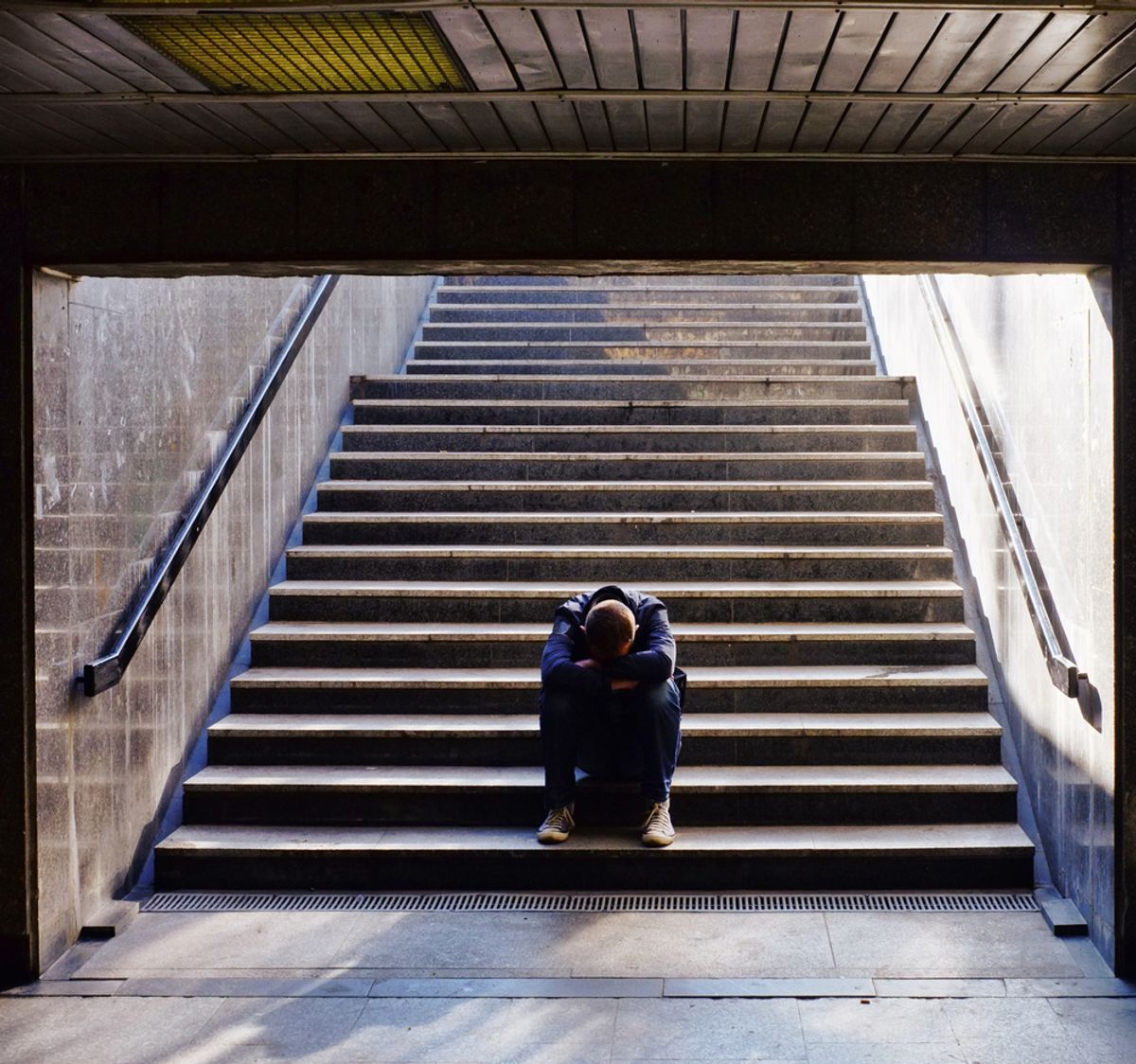While non-religious people tend to reject religion because they find the evidence for a supernatural deity unconvincing, a new study shows that rejecting religion can be good not just logically, but emotionally.
While previous studies had suggested some emotional and social value to being religious, a new study that examined a huge number of people from around the world discovered that being religious is a risk factor for depression. As explained by the Huffington Post, over 8,000 people from different countries from the UK to Chile, had their levels of religiosity measured. The study covered various economic and social groups and looked at the relationship between religiosity and depression.
The researchers found that religious people were more prone to depression, with rates of developing depression in places like the United Kingdom being three times as high for believers than non-believers. Studies like this are merely measuring risk factors and not necessarily suggesting a causal relationship so much as suggesting to clinicians traits to look out for when determining a patient’s chances of developing depression. However, the fact that the finding was both cross- and intra-cultural suggests that there may be more going on here than a simple correlation.
Is there anything about religion that might make people more prone to depression? Or is it that people who are prone to depression are more likely to be religious?
The latter is certainly an intriguing possibility. It would make a lot of sense if people who are prone to depression find themselves drawn to religion, precisely because it offers the kind of hope depressed people often find difficult to muster by themselves. This is particularly true when one considers how religion imagines hope as a thing external to the believer. All the believer is required to do is believe and follow a set of rules, religions like Christianity promise, and they will go to heaven.
Depression is described as a state where the sufferer experiences “feelings of helplessness, hopelessness and worthlessness and of being out of control." Depressed people have a hard time looking on the bright side of life, and muscling up that optimism that allows non-depressed people to feel confident in their ability to go out and conquer the world. It’s not a coincidence that religion offers exactly what is missing in a depressed person’s life.
Take Christianity, for instance. It promises that God loves you, that he has a unique plan for you, that you can exert control over your life through prayer and good works, and that even if things are bleak now, there is a promise of another life beyond where things are perfect. If you can work yourself into believing it, that might sound very much like a cure, especially if you’re not aware the feelings you’re suffering are clinical depression—which is a common dilemma for people suffering it.
Certainly there’s some reason to believe that if society protects people against some of the worst causes of depression, such as the fear of falling into poverty, that society will have more atheists in it. Stable, egalitarian societies repeatedly prove to be places where the atheist message takes off really well. We know that on a national level, if people feel like they have control over their lives and there’s hope in the here and now, those nations tend to have more atheists.So why wouldn’t that be true on an individual level?
Most atheists, including myself, like to believe we came to the conclusion that religion is not true and that there are no gods simply through rigor and logic. What this study may suggest, however, is that we’re underestimating the role our emotional states play in making us at least willing to hear atheist arguments. When you feel good about yourself, you’re less likely to need to hear there’s a God who does the loving of you for you. If you feel hope about tomorrow, the promise of heaven isn’t quite as tempting—or you’re less likely to be perturbed at the idea of death being forever if the life you're living today is pretty good. If you feel you have some control over your life, you’re not going to see any need to beg a supernatural being to intercede on your behalf.
For those of us who want to both help people leave religion and improve the public image of atheists, this understanding of why religion so often appeals to people is critical. Instead of being angry with religious people for believing, it’s useful to consider that the hope that religion offers might seem like a lifeline to people who are hurting badly, and ask if there’s anything atheists can do to offer similar kinds of hope.
Indeed, one major advantage atheists have on their side is that there’s no reason to believe that religion alone is actually helping people. After all, religious people have higher rates of depression, suggesting that while they may hope religion will make them feel better, it’s often not working.
Luckily, more atheists are beginning to take seriously the idea that atheist activists need to be talking more about mental health, and reaching out to people who have mental health issues and getting them the evidence-based help they need. Some atheists, like Greta Christina and JT Eberhard have opened up about their own struggles with mental illness. Instead of offering prayer and heaven as answers, they point their audiences to more proven methods for getting help, such as therapy and the use of medication under a doctor’s supervision. Indeed, atheists are uniquely able to speak to the issue of getting help for depression, because they can speak directly about the environmental and biological causes without getting bogged down in talking about spirituality.




Shares